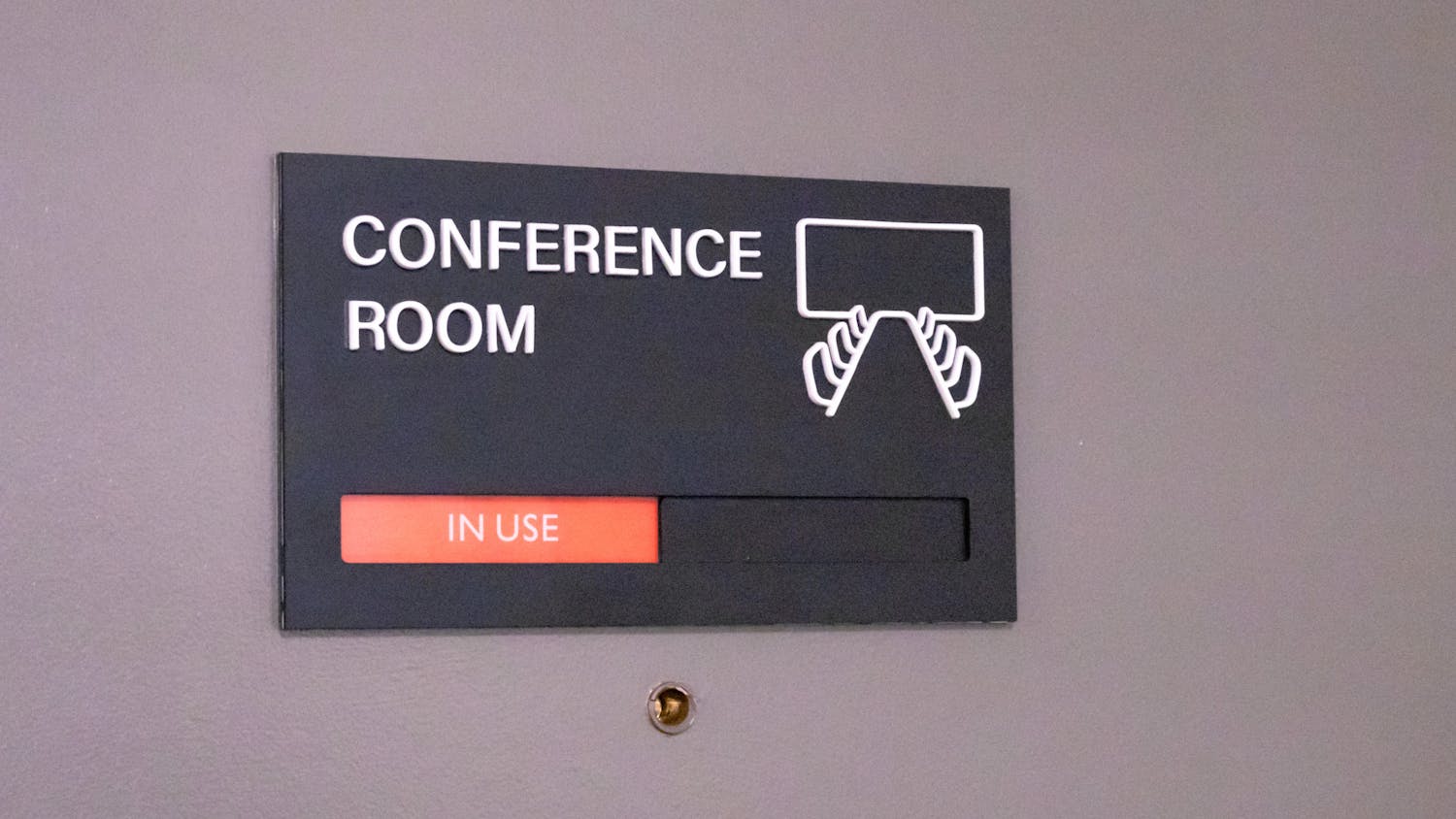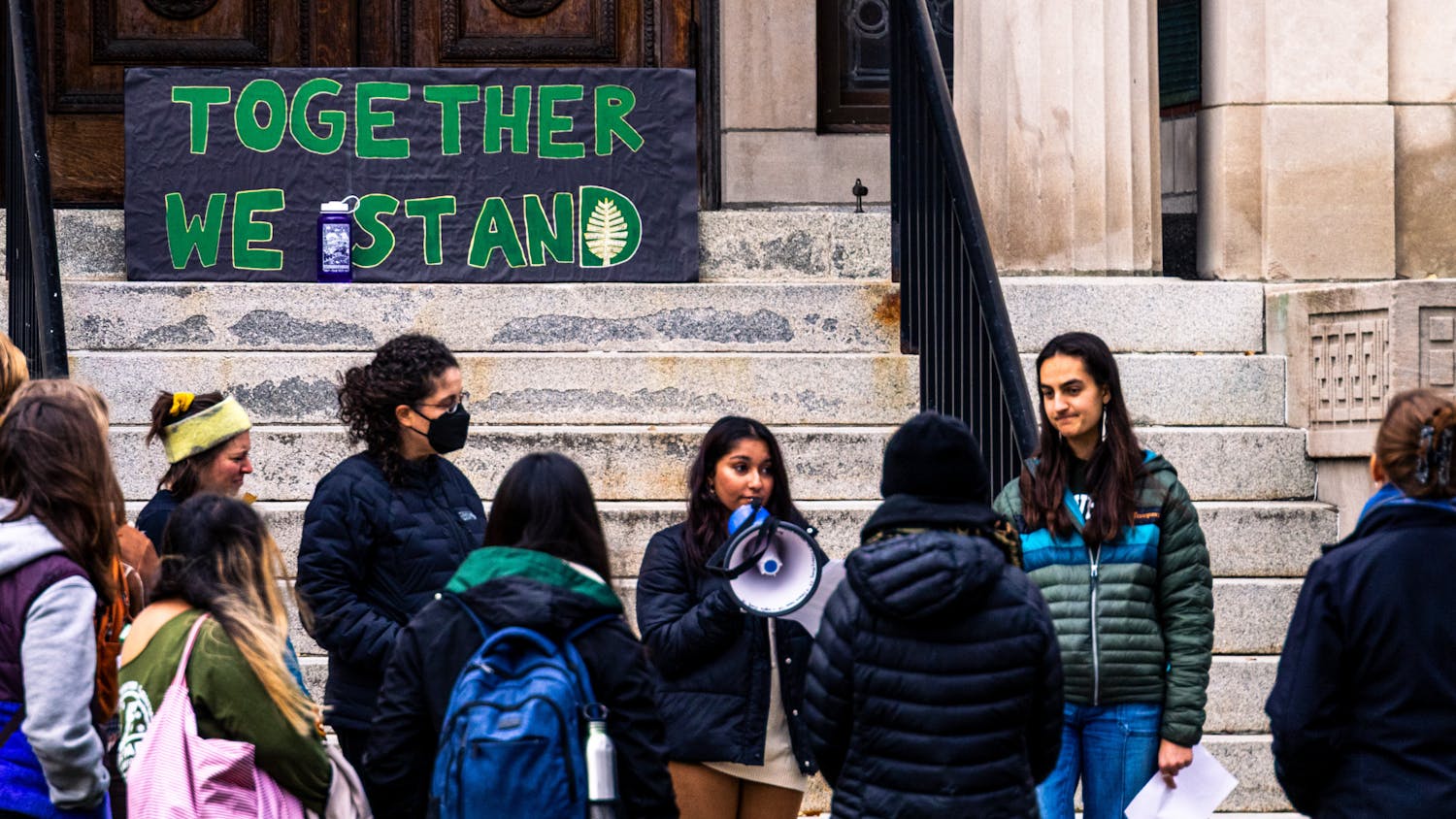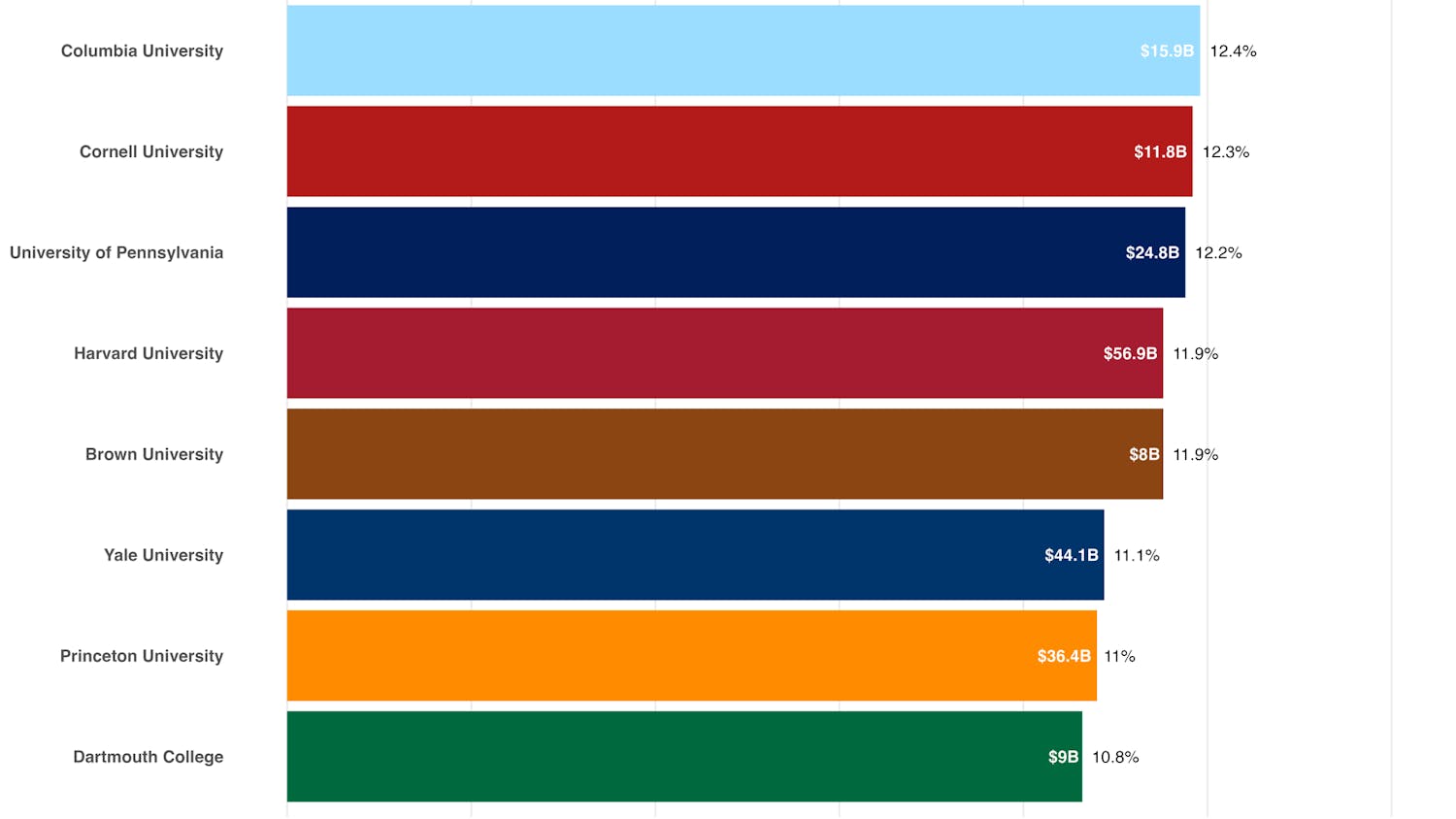Nobel laureate Wole Soyinka denounced African dictatorships and linked past atrocities to current problems in Africa at the opening of an international conference last Thursday.
Soyinka drew parallels between the recent past and the present, such as the turbulence and war in Rwanda and the situation that caused it -- a situation that now exists in certain African nations.
He pleaded for "truth, restitution [and] reconciliation," a healing of the present and acceptance of memories of the past.
"A failure to revisit memory absolutely insures that those atrocities will be repeated," Soyinka told a crowd in Cook auditorium.
"Reparation is still reparation by any other name; it is not monetary recompense," he said.
Problems in Africa today "owe nothing to arbitrary boundaries" drawn by imperial nations, Soyinka said. The strife owes "more to a case of brandy and a case of cigars," he continued, adding jokingly that "West Africa owed much [of it's freedom from colonists] to its humidity and the mosquito."
Soyinka focused on the "fatal delinquency of our kind," and the problems of dictators "slithering and sliding" and generally ruining the chance for recovery in African countries.
Belittling "petty military dictators," and scoffing at Americans who admire their positions, Soyinka stated his contempt for those who capitalize on "captive, impressionable audiences seeking targets" and scapegoats for their misery.
Soyinka denounced anti-Semitic propaganda, pointing out that those involved "should hold inviolate the authority of our shared history."
Soyinka focused on the question of "why the history of the slave trade must continue to plague the memory of the world," comparing the 20 million Africans shipped to the Americas to the 6 million Jews killed in Nazi-controlled Europe.
Soyinka also emphasized the importance of remembering and coping with the past.
"A failure to revisit memory absolutely insures that those atrocities will be repeated," he said.
When asked to comment on the "African Renaissance," Soyinka said sarcastically, "this renaissance has been around quite a while."
Unless Nigeria and Zaire are "saved," he added, "the prospects of renaissance are very distant."
When asked, "to whom" salvation in Africa was directed, whether the nations or tribes, Soyinka said that recovery and salvation were "for the human entity." He said that it is, however, more convenient to talk of nations "because we're stuck with them."
He said the "brain drain" in Nigeria hurts the potential of that country, and he spoke against the idea of help for the entire continent as a single entity, although Soyinka recollected he "proposed to the World Bank the idea of annulling the debts of the African Continent in return for us annulling our memory."
He described the emotions of a journey to the extermination camps used by the Tutsis. The pilgrimage, he said, "was paradoxically devoid of hatred," and it served to remind him of W.E.B. Du Bois' belief that each person in the mass is an individual.
Soyinka, author, poet and playwright, political activist and recipient of the Nobel Prize for Literature in 1986, is currently the Robert W. Woodruff Professor of Arts at Emory University.
A political activist for over thirty years, he served two years in jail during the Nigerian Civil War (1967-1969) and was exiled from his homeland in 1994 by its most recent military dictator.
His speech kicked off a weekend-long international conference, "Truth, Healing and Social Justice: From Biafra to Bosnia," designed to discuss public policy in trouble areas around the globe.
"The conference [examined] the tensions between reconciliation and social justice in situations of deep internal conflict by providing a comparative perspective on Rwanda, South Africa, Nigeria and the former Yugoslavia," said Ifi Amadiume, Dartmouth chair of the African and African American Studies program which is sponsoring the conference.
Other speakers at the conference included Dr. Francis Mading Deng, writer, Sudanese citizen and former teacher at Yale Law School, Buchi Emecheta, a Nigerian-born author, representatives from civil rights groups, African governments and faculty members from Dartmouth, Emory University and St. Lawrence University, as well as other universities in Nigeria and Zululand.



